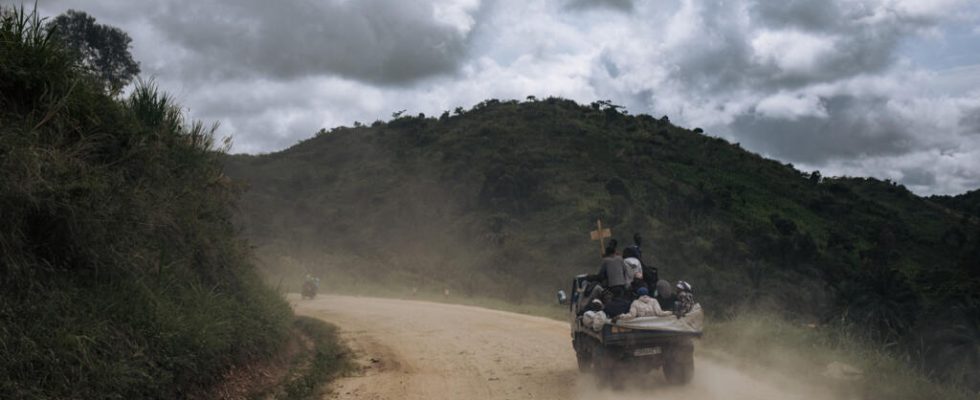In the east of the DRC, while attention is mainly directed towards the M23, other groups also kill, rape and loot. This is the case with ADFs. This group of Ugandan origin which has pledged allegiance to the Islamic State group mourns the populations of North Kivu and Ituri. Since March 6, ADF attacks have claimed at least 118 civilian casualties, according to UN figures.
With our correspondent in Kinshasa, Patient Ligodi
It’s always the same modus operandi: the ADF rebels attack, kill, loot villages, burn houses and withdraw with hostages.
The violence of recent weeks has mainly been concentrated about 20 km south of the city of Beni, in the province of North Kivu. An area supposed to be protected by the Congolese army and Monusco troops.
Since this resurgence of violence, part of civil society has called for the intervention of troops from the coalition of Congolese and Ugandan armies (FARDC-UPDF), usually deployed further east. This coalition is considered to be better equipped and more effective than the Congolese army troops and blue helmets.
All this in a context marked by the hostility of part of the population against UN troops, which does not always allow them easy deployment.
An evaluation of joint FARDC-UPDF operations is planned for the beginning of April. Among the problems that will be examined: the coordination between FARDC and UPDF, and between this coalition and Monusco, but also the management of the Congolese army personnel spread over several fronts and in several provinces.
■ Assizes to appease South Kivu
With our correspondent in Bukavu, William Basimike
Several hundred representatives of different communities have been meeting since Tuesday in Bukavu around a round table on peace and development in the province of South Kivu. These four-day meetings aim to iron out differences and find solutions for lasting peace in this region often undermined by inter-community conflicts. They are organized by the League of Leaders for Peace and Development (a civil society structure), in collaboration with the Civil House of President Félix Tshisekedi. South Kivu is experiencing armed conflicts between communities but not an openly declared war as is the case in North Kivu.
At the heart of the discussions, governance, security and social cohesion, the management of land and mineral resources, often at the origin of socio-economic and political conflicts in this province. Joseph Nkinzo coordinates the League of Leaders for Peace and Development, he explains the particularity of this round table compared to the others already organized:
” Its particularity is the involvement of the Republic at the top. We had many conferences and peace forums, but we had not felt the involvement of the Head of State personally, or of the institutions of the Republic. All authorities are involved, and the Head of State expects from these meetings a republican pact with a development agenda for the province of South Kivu for this decade 2023-2033 “.
A matter of will
This round table also analyzes the geostrategic and diplomatic relations of South Kivu in the Great Lakes region, and other socio-cultural issues. Member of the Banyamulenge community and civil society actor, Tharcisse Kahayira remains optimistic: “ Every peace initiative is to be commended, and it is always important to be optimistic. Now it’s up to everyone to make an effort. We have to get involved in the change. »
The first vice-president of the Defense and Security Committee of the National Assembly, Professor Jacques Djoli, urges a dose of goodwill so that South Kivu is part of the logic of the government program for the development of its 145 territories. : “ We have everything to make South Kivu, not the epicenter of conflicts or the world capital of rape, but to make South Kivu the epicenter of development because its development will ignite that of Maniema, North Kivu …So it’s all about vision, it’s all about will. »
The participants took the opportunity to condemn the war in neighboring North Kivu, and encourage all efforts to restore peace there.
